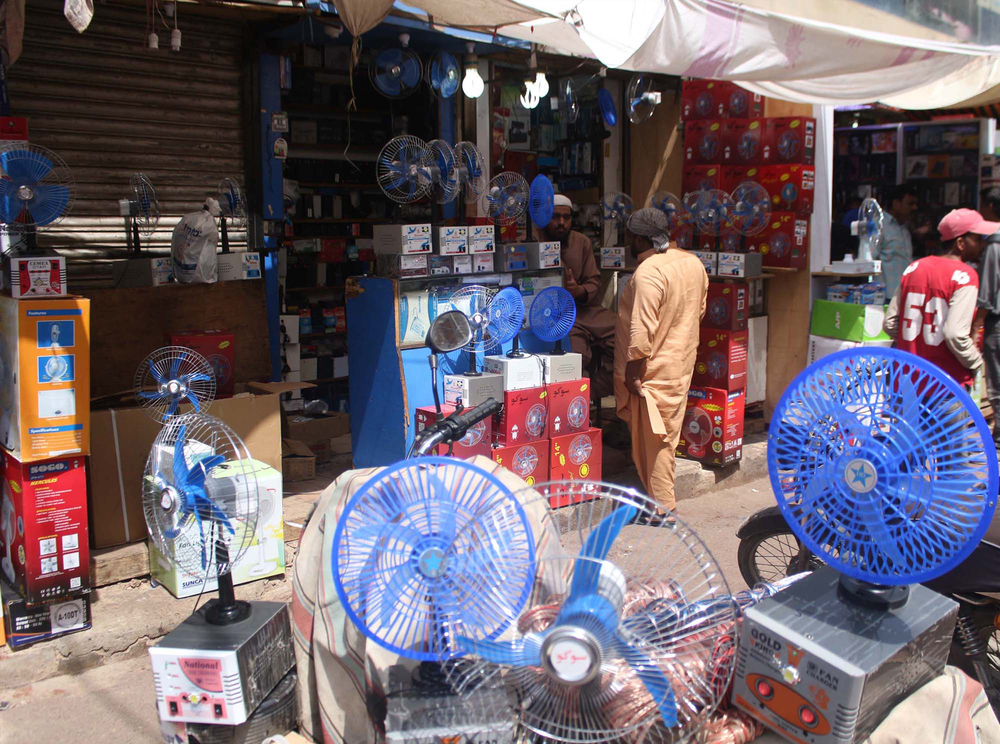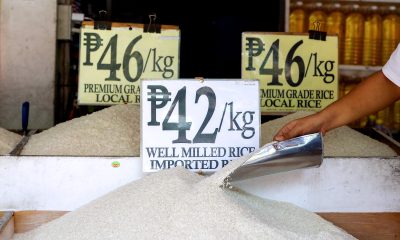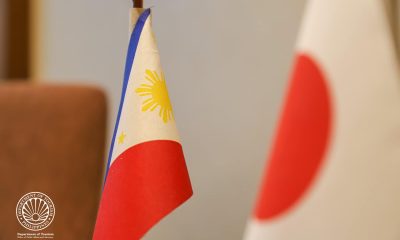Breaking
Major heat wave in southern Pakistan kills over 600 people

Prolong electric load shedding over haul to Metropolitan; Electric re-chargeable fans are being selling on shops of Saddar Electronics Market on June 16, 2015 in Karachi. (Asianet – Pakistan / Shutterstock)
KARACHI, Pakistan — A scorching heat wave across Pakistan’s southern Sindh province has killed at least 622 people, authorities said Tuesday, as morgues overflowed with the dead and overwhelmed hospitals struggled to aid those clinging to life.
Most of the deaths were reported in Karachi, the country’s largest city and its commercial hub. The port city on the Arabian Sea had at least 600 fatalities.
Temperatures reaching 45 degrees Celsius (113 degrees Fahrenheit) first struck over the weekend in Karachi, with mercury rising in the rest of Sindh province. Hours-long power outages, typical in Pakistan, left fans and air conditioners inoperable.
The heat wave compounded the struggles of ordinary Pakistanis as it struck amid the holy, fasting month of Ramadan, when observant Muslims abstain from food or water during daylight hours.
“We have confirmed data that 622 people died of the heat wave across the whole of province,” said Saeed Mangnejo, the top administrative health official in Sindh.
“But the worst hit is Karachi, where over 600 people died of heat stroke, 19 died in other parts of the province,” he said, adding that he expects the number of fatalities to climb even further.
The Karachi toll was a significant jump since earlier in the day, the city’s director of health Zafar Ejaz said at least 436 people have been killed by the heat wave.
“Many people have been taken to private hospitals where they have died … we are collecting that data,” Mangnejo said.
The power outages also affected the sporadic water supply in Karachi, where those who can afford it rely on tankers of water being delivered to their homes.
Most of the dead are the elderly, said Seemi Jamali, a spokeswoman for Karachi’s Jinnah Hospital. Thousands more are being treated for heat-related ailments, including fever and dehydration and stomach-related illnesses, she said. Mortuaries were running out of space, with local television stations showing bodies stacked inside of cold storage rooms of morgues.
Many arrive at the hospital already unconscious or staring out blankly. Some fainted in hospital doorways, while patients lay on public benches and crowded corridors in wheelchairs and stretchers. Panicked families fought with hospital staff to admit their loved ones.
“We’re dying and we’re being told to wait,” said Moazzam Ali, as two women comforted his badly dehydrated mother, who was waiting for medical care.
Provincial Chief Minister Qaim Ali Shah on Tuesday ordered schools and public offices closed until the heat wave ends. He blamed the Pakistani federal government for the deaths, saying authorities had not responded to his appeals to fix the power grid. But Abid Sher Ali, a junior minister for water and power for the federal government, blamed Karachi’s local government for the deaths, saying they were not able to manage their own affairs.
Meteorologist Abdur Rauf called the heat wave the worst in at least a decade to strike Pakistan. He said expected monsoon rains in the coming days likely will bring relief to the area.
But for the time being, Karachi is boiling. Angry mobs protesting the power outages and lack of water blockaded several roads, burning tires. Police official Aslam Khan said there was no violence, though he called it an “anarchy-like situation” in some neighborhoods.
Karachi’s residents tried to find running water to cool off at public taps or broken pipes. Some bathed with their clothes on, while others washed their hands, faces and heads. As power outages rolled across the city, women and children walked down roads looking for shelter after leaving their small, suffocatingly hot homes.
Amid the traffic jams, some Karachi residents complained they were unable to find transportation to take the coffins of their dead to the graveyards.
“There are no buses to take our dead,” said Munawwar Khan.
Other voiced shock at how bad the situation had become.
“It seems as if there’s no government,” said Karachi businessman Salamat Hussain.
Associated Press writer Zarar Khan contributed to this report from Islamabad. Shahzad reported from Islamabad.





















